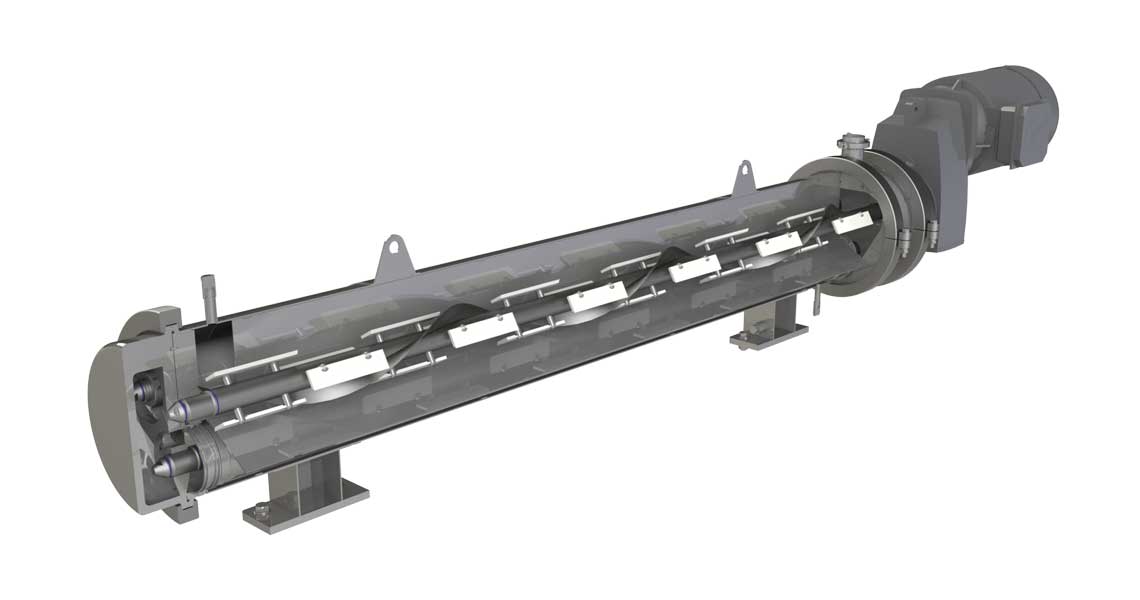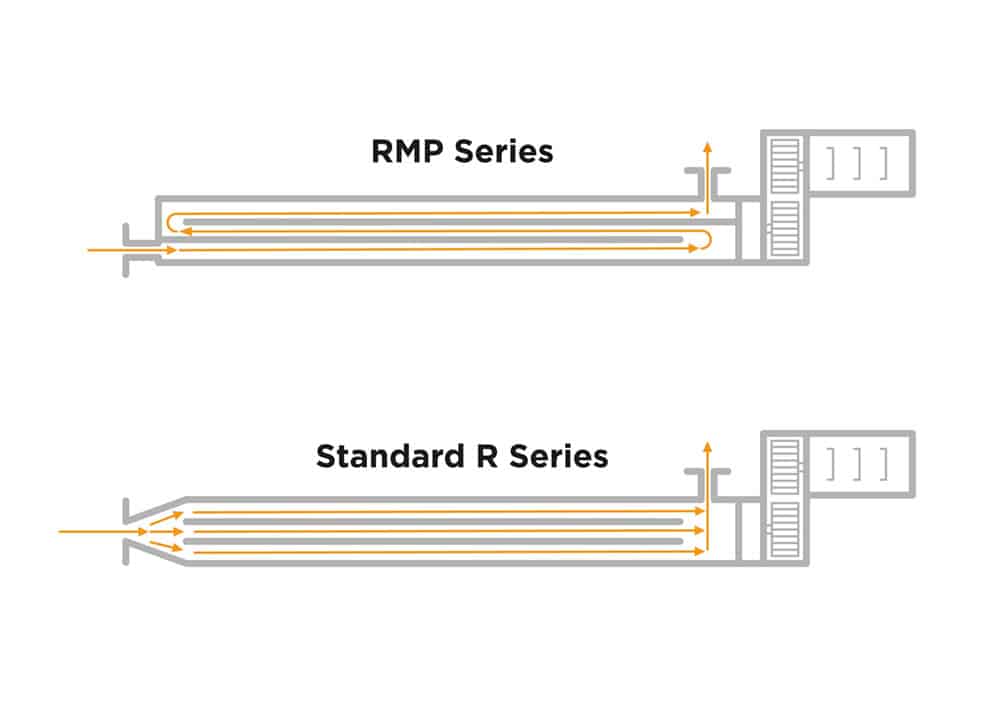HRS multipass RMP heat exchanger improves heat transfer for viscous materials

The HRS R Series of scraped surface heat exchangers is ideal for multitube scraped surface installations thanks to its helical scraper system which provides the ability to provide a large surface area with a very small footprint. We have now launched a new multipass version – the RMP Series – which further improves heat transfer for challenging viscous materials.
Based on the R3 model, which contains three tubes and provides a greater heat transfer area and capacity within the same footprint as a single unit – as well as all the benefits of a single heat exchanger, such as a single set of connections to the product and services, and the reliability and cost savings of a single drive assembly compared with multiple motors.
In standard R3 configuration, product passes from a single-entry point through each of the three tubes in parallel before exiting the exchanger from a single port. This arrangement reduces the overall velocity of the product as it passes through the heat exchanger and prevents operation in a pure counter-current flow.
The new RMP multipass arrangement links each of the three tubes in series: product enters through one tube, passes down the next and then moves back up the third. The use of longitudinal baffles in the outer shell achieves a true counter-current flow to improve heat exchange efficiency, while maintaining product velocity helps reduce pressure drop and increases product mixing. Crucially, the RMP maintains the overall large surface area of a standard R3 system within a compact unit; one of the system’s key benefits.

As the new layout has a consistent cross-sectional area, the risk of dilution and blending from cleaning-in-place (CIP) operations is greatly reduced compared to other large surface area heat exchangers. Flushing is therefore more efficient, enabling greater recovery of high value products without contamination or mixing, while the cleaning phase itself is also more effective due to the maintained velocity.
The new RMP Series is ideal for a range of challenging viscous materials, and is being deployed in a number of sectors, including viscous and starchy foods, such as thick sauces, pastes, creams and pet foods, for example.